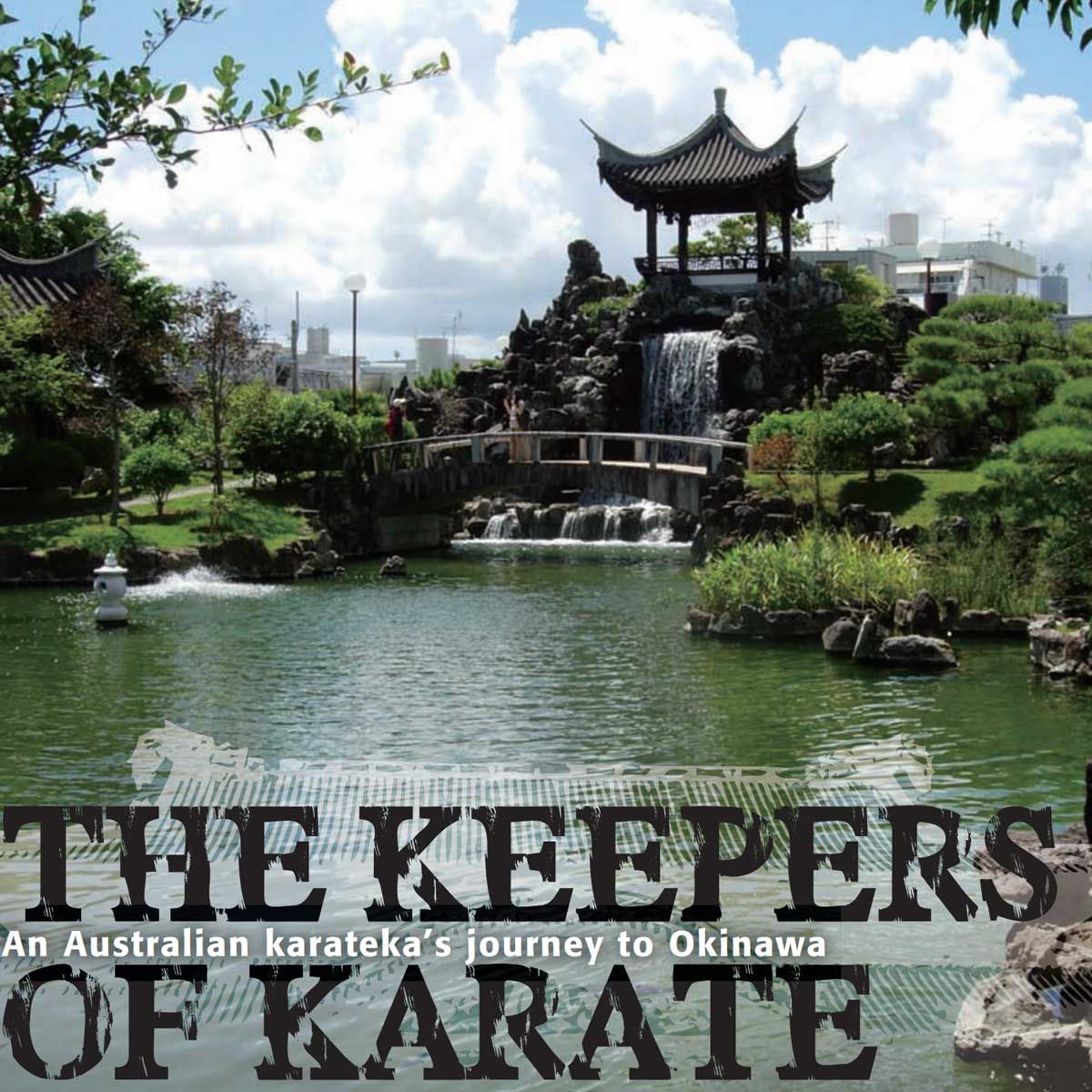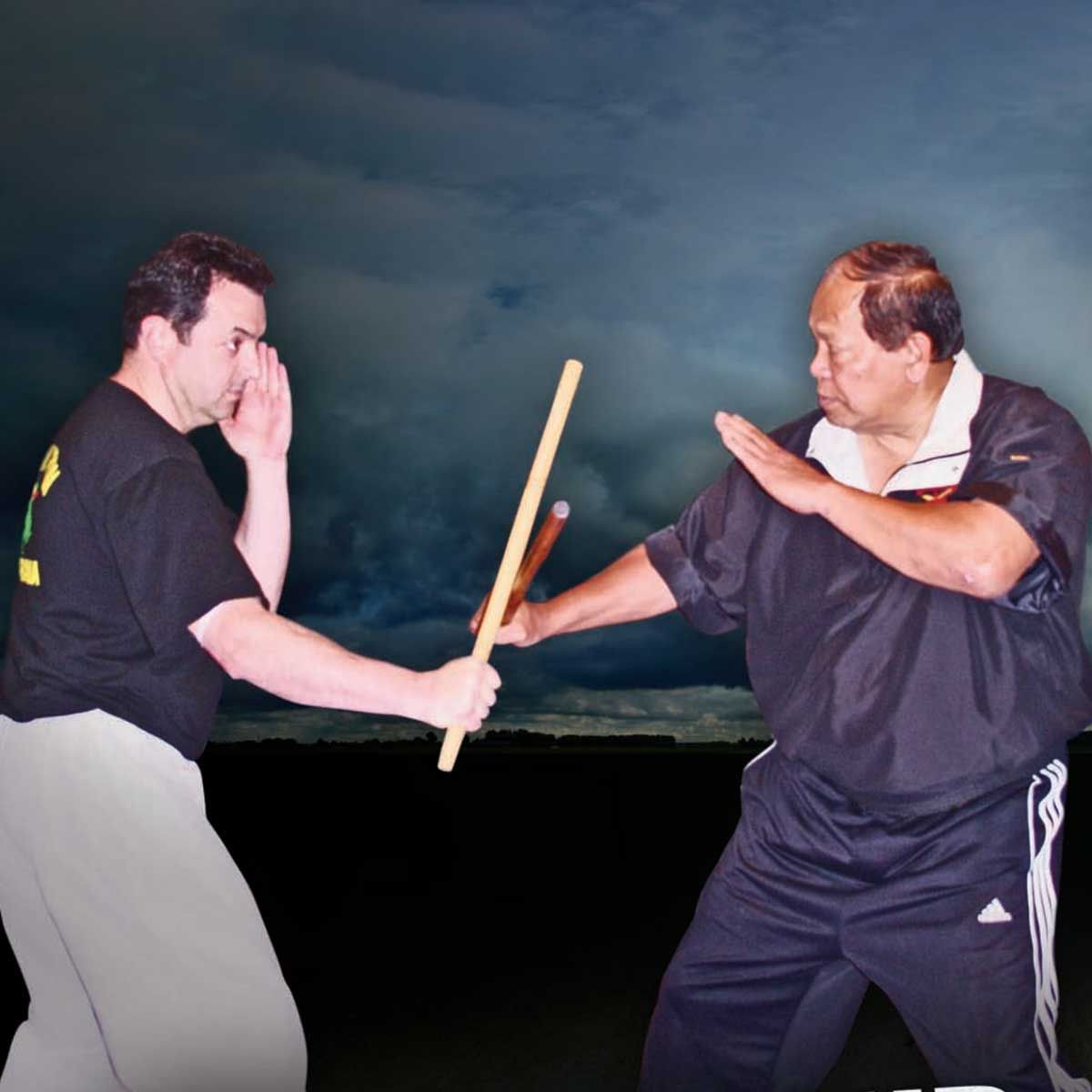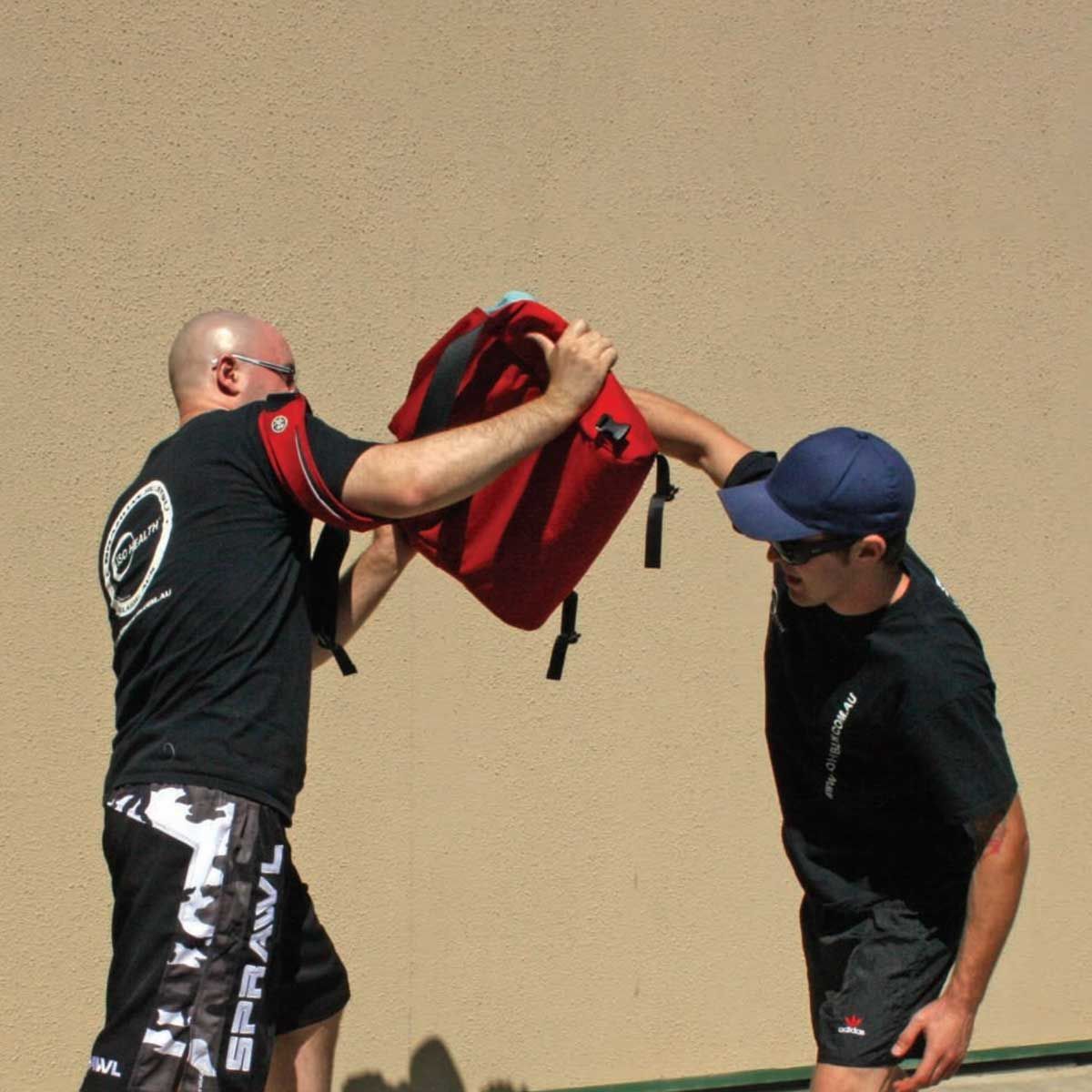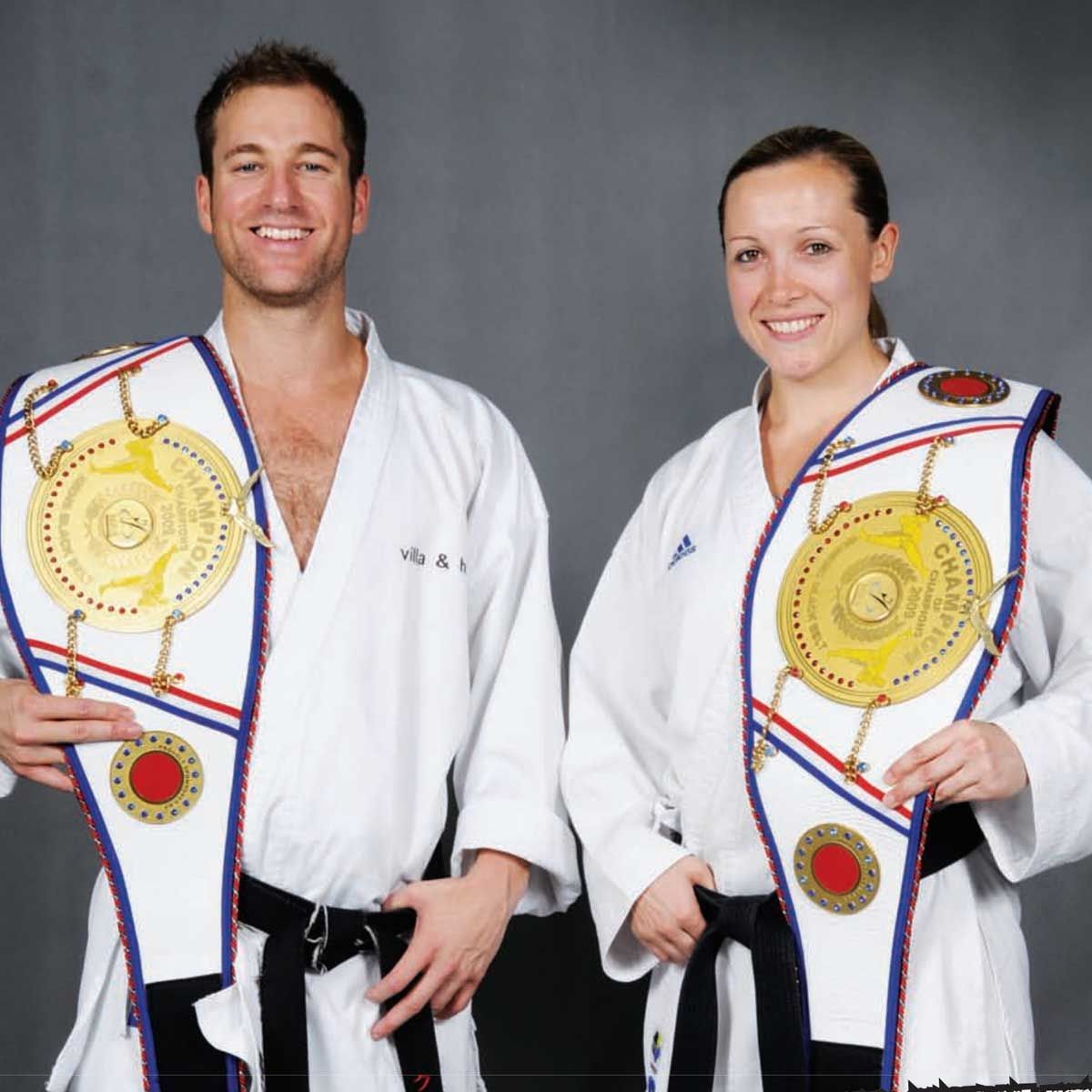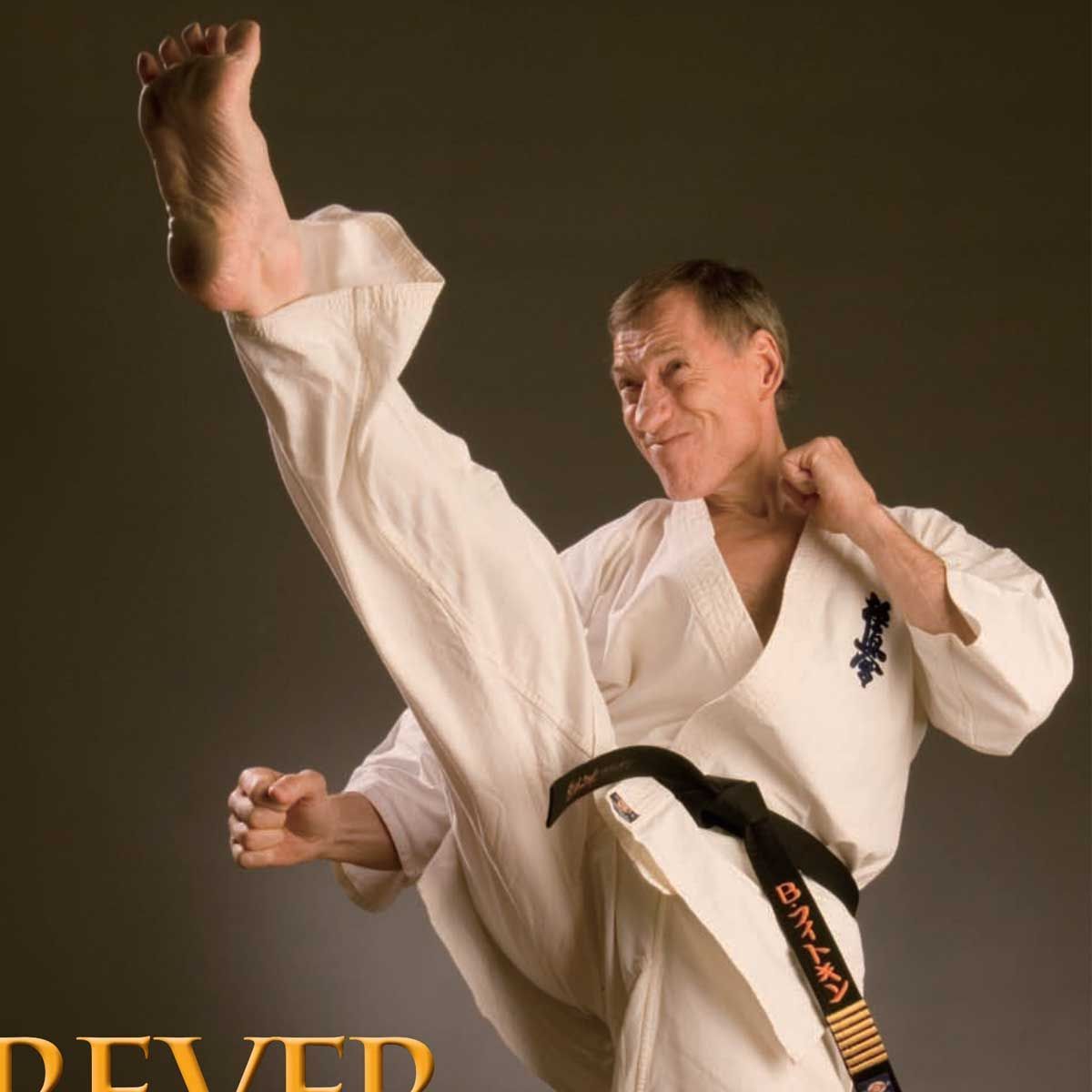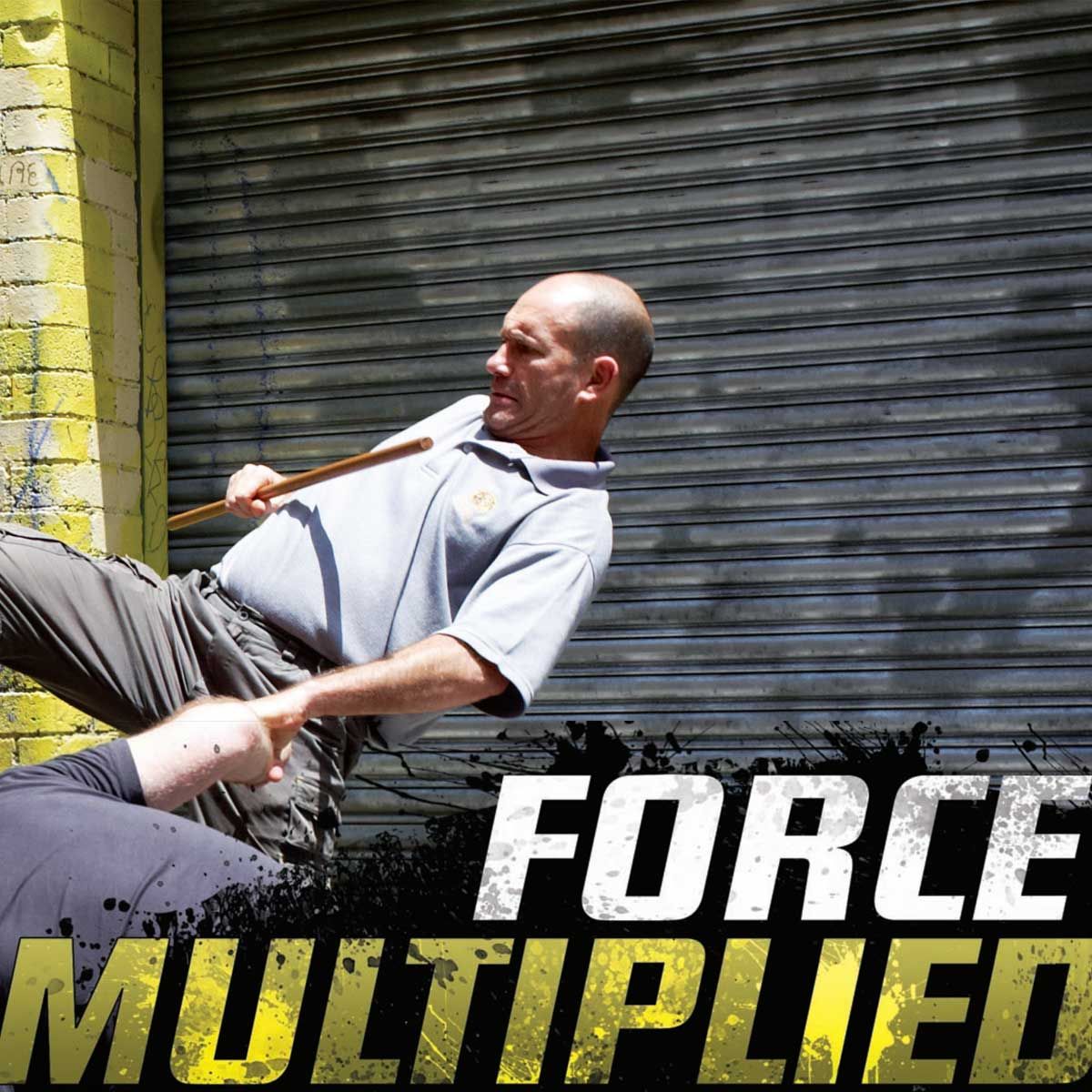THE ROCKY OF TAI CHI - Ken Yue Kwong
It’s a typical Saturday night at Rocky’s restaurant. Guests are chatting noisily, oil is sizzling and the clatter of plates can be heard from the kitchen. Waiters bustle between tables, taking orders, clearing plates and filling drinks. Enter two heavy set men who are clearly drunk.
They bob and sway towards the counter to order some take away food. The cashier takes their order and scurries off to the kitchen. He returns to find the dining room quiet and the guests aghast. The drunks are seated at one of the recently vacated tables. One has put leftover food in his mouth and proceeded to spit it out all over the table…
STORY BY CHELSEA ATTARD
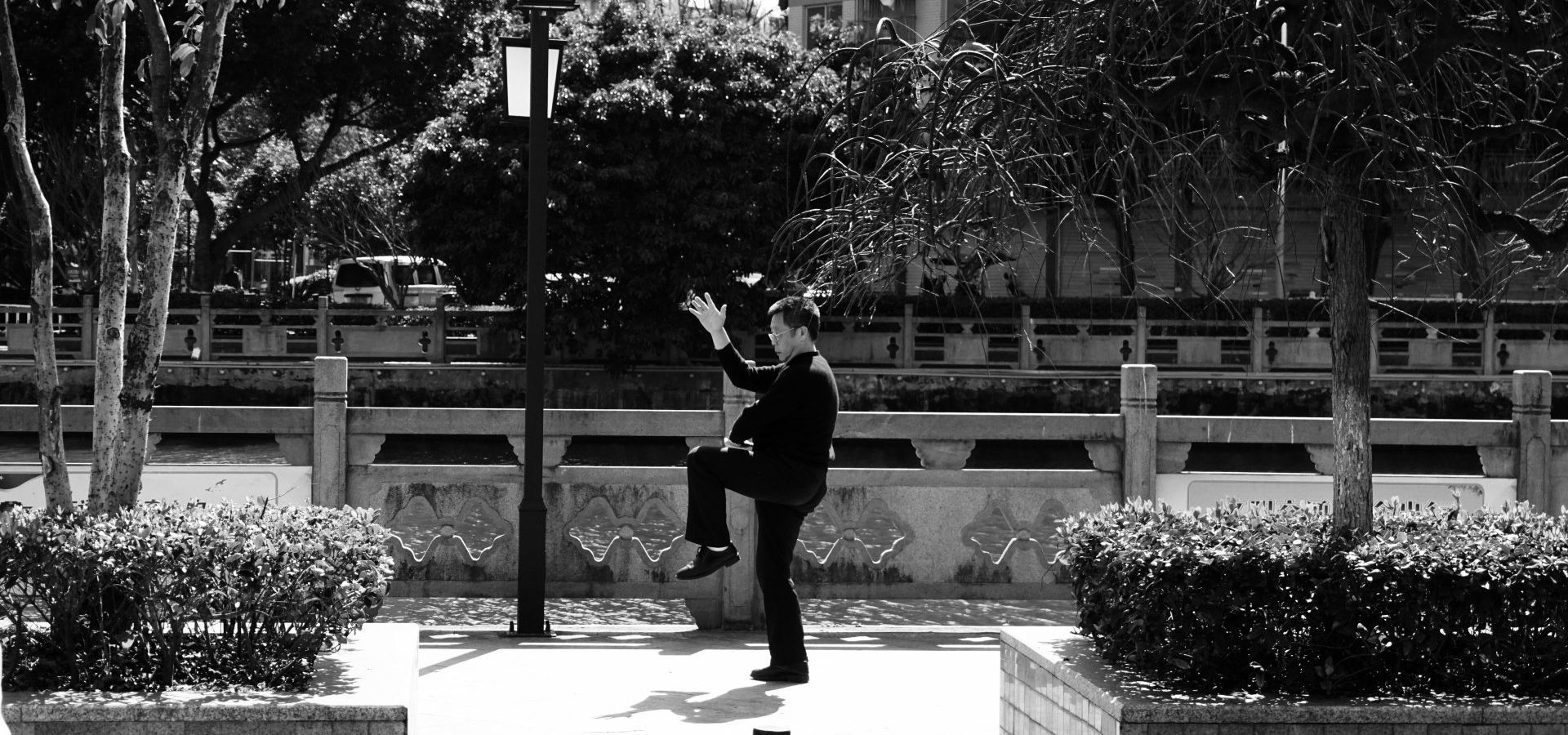
The restaurant manager ducks back behind the counter and returns to the drunks’ table, handing them their money and telling them they are no longer welcome in his restaurant. Clearly taking offence, one of the heavyset visitors stands and picks the restaurant manager up in a bear hug, so that his feet sway helplessly in the air. What the drunks don’t realise, however, is that the man they have chosen to attack is in fact skilled in the martial art of tai chi chuan.
At this point our story sounds as if it has been plucked right out of a classic kung fu movie, so it may be hard to believe that the scene actually played out for real in Boronia, Melbourne. The skilled tai chi practitioner was not a character played by Bruce Lee, but a figure just as well known within the tai chi community: Grandmaster Ken Yue or ‘Rocky’ Kwong, of Rocky’s Tai Chi Academy, now in Perth, WA. “I put my hands up to his neck,” Rocky says, “and pushed my thumbs right in until his eyes nearly popped out of his head. He dropped me, and then I dropped him… the second guy came to attack me from behind, as he came I kicked him and he fell back. When he moved to get up, my other customers stood up, shouting at him: ‘Stay down, stay down or he’ll kill you!’ they yelled. He chose to stay down.
By this time the police had been called. They told me they took their time because they knew it was my restaurant and that ‘Rocky would handle it’.” This is the story Rocky Kwong told me when I asked how his years of training in Wu style tai chi has helped him in self-defenses situations. “I brought down both of them to the floor using my tai chi. Not only was my self-defence effective, but I got them to replace the bloodstained carpet as well! The judge told them next time to visit the restaurant first and then the liquor store,” he said. But Rocky’s story and martial arts journey began long before that night in the restaurant, so perhaps we should start at the beginning.
Before his days as head chef and restaurant manager in Boronia, Rocky began practising Wu style tai chi as a teenager in China. “My first teacher was Ng Sing Gee in Hong Kong. We trained on the roof of the Motor Mechanic Association,” Rocky reveals. “I was curious to find out what tai chi was really all about and as a young man I needed something to occupy my time when not working.” Leaving the rooftop after roughly one year, Rocky met famed boxer Master Cheng Ting Hung (a fourth-generation Wu teacher), who he deems today to have been his most influential teacher. “As a boy I was very interested in learning how to defend myself and his system of martial tai chi was exactly was I was looking for,” he recalls. Having trained in Hong Kong and in Australia, Rocky admits that the style of training in tai chi’s birth country was more intense. “In Hong Kong each student has access to the gym every day, compared with here where each student only really goes once a week.
A student [in Hong Kong] could train to a higher level. They trained harder than here.” Rocky’s training regime in Hong Kong was certainly impressive. “I trained every single day: four hours at home by myself and then three hours in the gym with the other students. Looking back, I think now that I was crazy doing that much every day but I didn’t know any better as a young boy.” All that hard work and extra training certainly paid off for Rocky. While training with Master Cheng Ting Hung, he was invited to become one of Hung’s disciples and part of the ‘brotherhood’.
As Rocky explains, “In Chinese tradition the master is like a father and all the disciples are like his children. Amongst the children, they call themselves the ‘brotherhood’. The brotherhood has full access to all the master knows with no restriction and no favoritism — just like how a father would never teach his son half and his daughter everything. It’s always even. This is how it is being in the brotherhood.” While being in the brotherhood certainly had its perks, there were also challenges to overcome. One of these challenges for Rocky was the need to practice certain ‘technicals’ — those taught only to brotherhood members — in secret. It seems Rocky’s secret training led him to, well, the toilet, of all places! There he would practice with the door locked, in guaranteed privacy, and no-one could get in until he was finished.
Rocky trained with Master Cheng Ting Hung for 10 years, right up until he emigrated to Australia to study accounting in 1960. Between 1960 and 1969 Rocky endeavored to keep up his tai chi training, even when faced with a lack of training facilities. “I would practice on my own or with whoever was around to practice with,” he says. After opening his first restaurant in Australia in 1969, Rocky began work as restaurant owner and head chef. This is where the next chapter of his story begins. Master ‘Rocky’ Kwong’s Tai Chi Academy in Australia has humble beginnings. Rocky began teaching his first students in Boronia in 1969. There were no training fees to begin with, as Rocky had decided to start teaching just so he had someone to train with, and classes were run simply for the love of the art. “I had about three or four students that would come to train in my restaurant with me on Sundays. We used to move all the tables and chairs to make room for us to train.
We would then have to re-arrange in any one session. All of these exercises are practiced in every class. Accompanying that are a few other exercises, which can be added depending on the interest and willingness of the students. These involve martial application, static or moving meditation, push-hands, focus punching, breathing exercises and wrestling. “Class is almost always followed by Chinese tea and some time for the students to warm down and socialize,” Mike says. Having trained with Rocky for just over nine years, Mike speaks very highly of his sifu. “Rocky will never expect his students to practice something which he himself hasn’t already practiced and proven.
If it doesn’t work, Rocky won’t teach it. His dedication to his students is second to none. Rocky runs every class himself, five times a week. He can demonstrate every move and every application with incredible agility and power for someone in his 70s. He is absolutely a true master.” Reflecting on his teaching, Rocky expects that ultimately his students will gain a true understanding of what tai chi is. “I hope my students will be able to use and share the core principles [of tai chi] with others. For example, tolerance, patience, determination and the ability to be decisive, because this is what I myself have achieved.”
Like many other martial arts instructors, Rocky recognizes the relevance of the tai chi he teaches, and its place in everyday life. “My teaching is very simple: teach my students what I have gained through practicing tai chi all these years. I have used my tai chi skills and all my training to enrich my day-to-day life in general. This is something I hope will be picked up by my students, which will help them in turn to propagate their personal life, and all who come in contact with them.” When I ask student Mike how his training has benefited him, he replies, “This system seems to weave its way unknowingly into everyday life — to a point where you live tai chi instead of merely practice it — and in doing so provides me with a stronger drive to constantly push my physical and mental boundaries.” While his efforts are constantly praised by students, Rocky has also gained recent recognition by those outside of his classes, with an award from WA Seniors Sport and Recreation in recognition of his services to the community of Western Australia.
When asked to reflect on his proudest achievement over his many years of training, Rocky says, “I think my greatest achievement is that at 76 years old I can still maintain my physical and mental composure and the ability to run four classes per week here in Perth, just like I used to do 20 years ago in Melbourne.” As for the benefi ts of all those years of training, Rocky claims that the most valuable asset he has taken away from his training is what he has learnt from his students. “There is a limit to what I can teach,” he says, “but what I can learn from my students is limitless, not only in tai chi but also in life in general.”
Now in his 61st year of training, the restaurant owner in our story stands as a pillar of the Chinese martial arts community. Many would attest to Rocky’s excellence as a martial artist, however, when I ask the man himself for advice on how to achieve such excellence, he offers a rather modest answer: “I don’t really consider myself a great martial artist; however, in my humble opinion, I feel to become a great martial artist you must have the following: Firstly, one would have to fully understand the commitment of what is required. Secondly, you must be completely dedicated to the art. Thirdly, there must be the determination to succeed.
Finally, the time to apply oneself proficiently.” Once a disciple himself, Rocky now has disciples of his own. One of them, Dayton Robson, had this to say about his sifu: “In my humble opinion, watching Master Rocky doing the tai chi solo exercise is like watching a stream of water flowing; that creates its own path, overcomes obstacles with little or no effort, but has the hidden power that can cut the human obstacle in half should the need arise. It is something to be seen, for it to be appreciated.” As training for 2010 recommences at Rocky’s Tai Chi Academy, it is clear that this man’s martial arts story is far from over. It seems safe to say that even at the age of 76, Rocky will continue to inspire many of those who cross his path.□
Blitz Martial Arts Magazine MARCH 2010 VOL. 24 ISSUE 03






